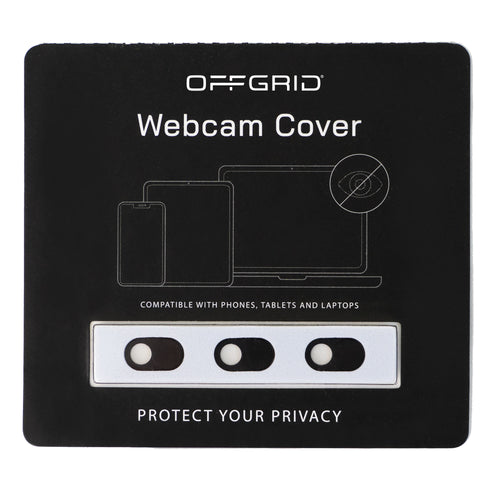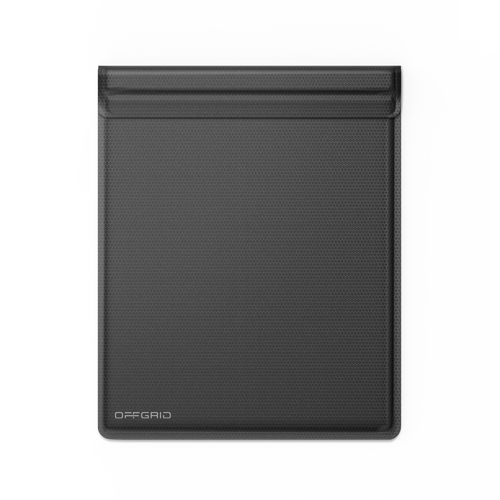Smart homes are everywhere now. Lights, thermostats, cameras, locks, sensors, speakers. Each device makes life easier, but every wireless connection also creates a possible way in for someone who shouldn’t be there. As more people start paying attention to privacy and digital security at home, one question keeps coming up: Can Faraday bags protect smart home and IoT devices from hacking, tracking, or unwanted signals?
Let’s break it down.
What makes smart homes vulnerable
Most smart home devices rely on wireless signals like WiFi, Bluetooth, NFC, RFID, Zigbee, or cellular. These signals make everything seamless, but they also open the door to risks such as:
-
Remote hacking attempts
-
Unauthorized access to smart locks or cameras
-
Device tracking through Bluetooth beacons
-
Data leakage from poorly secured firmware
-
Always-on microphones or sensors
Even when these systems are set up correctly, the wireless layer itself can’t be completely eliminated. That’s where signal-blocking tools enter the conversation.
What a Faraday bag actually does
A Faraday bag is built from conductive materials that block radio signals. When a device is fully sealed inside, signals can’t get in or out. It’s the same principle as a Faraday cage, but portable.
A high-quality Faraday bag can block:
-
WiFi
-
Bluetooth
-
Cellular (4G/5G)
-
RFID
-
GPS
-
NFC
This sounds perfect for smart home security, but the real usefulness depends on your goal.
Can Faraday bags protect smart home and IoT devices?
The short answer: yes, but only in specific situations.
A Faraday bag is ideal for:
1. Neutralizing always-on devices
Some IoT devices never fully power down. Sticking sensitive gear inside a Faraday bag prevents background data transmission when you don’t want it communicating.
2. Shielding devices during travel
Smart speakers, hubs, or wireless accessories can broadcast identifying signals even when you’re not using them. A Faraday bag keeps them silent and untrackable until you need them.
3. Preventing wireless attacks
If you’re concerned about Bluetooth-based exploits, WiFi brute-force attempts, or rogue access points near your home, a Faraday bag takes the wireless vector off the table entirely.
4. Protecting devices you rarely use
Old routers, unused smart plugs, spare phones, and retired IoT gear can still ping local networks. Bagging them keeps them contained.
5. Safeguarding during storage or disposal
When you’re getting rid of a device, blocking all communication reduces the chance of data exposure before destruction or recycling.
Where Faraday bags don’t help
Faraday shielding isn’t a magic fix for everything. You can’t use it on devices that need to stay connected. For example:
-
Your smart thermostat can’t be online if it’s inside a bag.
-
A smart lock can’t respond to commands if it’s fully shielded.
-
Whole-home IoT ecosystems rely on constant communication.
Faraday bags are a security tool, not a replacement for firewalls, secure WiFi, or good password hygiene.
Best use cases inside a smart home
Based on how modern homes actually operate, here are the most practical ways to use Faraday shielding:
• Store backup IoT devices safely
Old phones, hubs, mesh extenders, and accessories stay offline until needed.
• Protect portable smart tech
Think smart speakers, smart assistants, and IoT sensors you may take on the road.
• Add privacy during sensitive moments
Some people place smart speakers or home assistants in Faraday bags when discussing private or business-sensitive topics.
• Create a security “offline zone”
A Faraday bag can act as a controlled offline environment for devices that shouldn't communicate unless you say so.
Do Faraday bags make smart homes more secure?
They don’t replace cybersecurity fundamentals, but they add a physical layer of signal protection that software alone can’t match. For people serious about privacy, device shielding is becoming a normal part of the toolkit—right alongside password managers, secure routers, and encrypted backups.
Faraday bags shine when you need:
-
Complete signal isolation
-
Extra privacy
-
Protection from wireless attacks
-
Peace of mind
In an era of always-connected everything, a little silence goes a long way.
Final thoughts
Smart home security isn’t about fear. It’s about control. Faraday bags give you a switch that wireless devices don’t include: the power to disconnect fully, instantly, and physically. If you’re looking to strengthen your privacy and lock down your IoT ecosystem, they’re one of the simplest and most effective tools you can add to your home.




